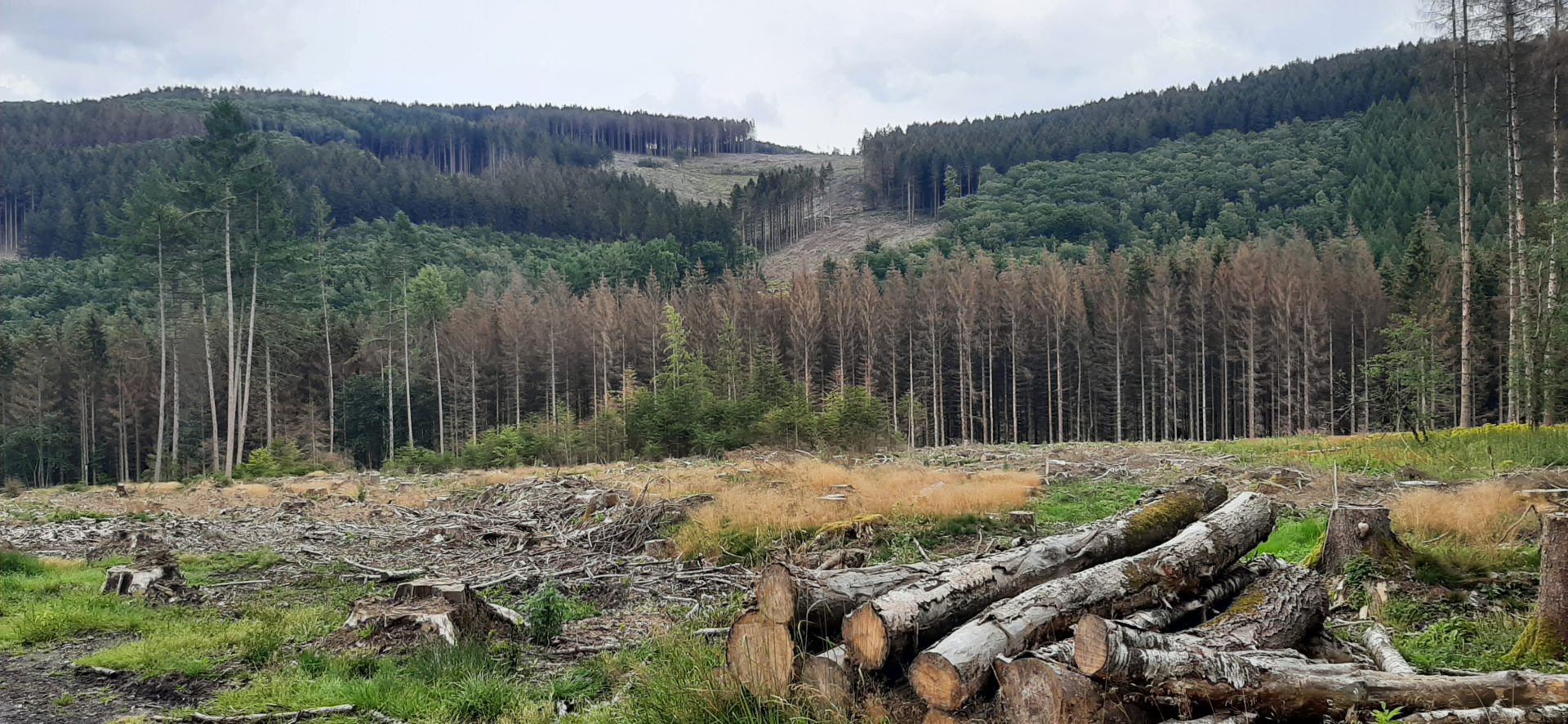The district of Siegen-Wittgenstein is located in the southeast of North Rhine-Westphalia and has eleven towns and municipalities with about 280,000 inhabitants. The district covers 115,000 hectares, with altitudes between 220 and 800 metres. Almost 70 percent of the area of the district is forest, making Siegen-Wittgenstein the most forested district in Germany. Another 63 percent of the forest area is coniferous forest – 59 percent of which is spruce.
In particular, the spruce population is highly endangered by the prolonged drought and the damage of bark beetle infestation. The bark beetle develops the highest potential for aggression, especially in the constantly dry and hot summers. In most cases, only the clearing of the infested wood remains, which radically changes the landscape. This leads to a massive loss of yield in the economic forest. Spruce trees were previously the victims of Hurricane Kyrill in 2007. This caused the highest damage in the district of Siegen-Wittgenstein. For example, 2.5 million trees fell victim to the hurricane (mainly spruce), with enormous economic damage to the region and especially to private forest owners.
Today, the increasing drought is increasingly threatening for the trees in the district. The so-called dry stress particularly affects young trees up to the age of ten, because here the root system does not reach deep enough into the soil to still get to water. In particular, this is the case with sandy soil, as the water is hardly held here, but seeps directly. Not only forests are affected, but also trees in cities, as they can hardly get water between the asphalt.
The heat and drought also affects agriculture. In recent years, there have been an increase in crop failures, which have fatal economic consequences for the affected actors in the district. Heat and drought are among the reasons why the construction of a third dam in the district is currently being examined. The summer of 2018, with months of rain, ensured that this topic was the focus. Although there was never any water shortage, this extreme summer was taken as an opportunity to prepare early for the ongoing climate change.
(Siegen-Wittgenstein district 2018, RP Digital GmbH 2020, Sauerland-Tourismus e.V. 2020, Forest and wood NRW 2020)
 go to Overview
go to Overview 